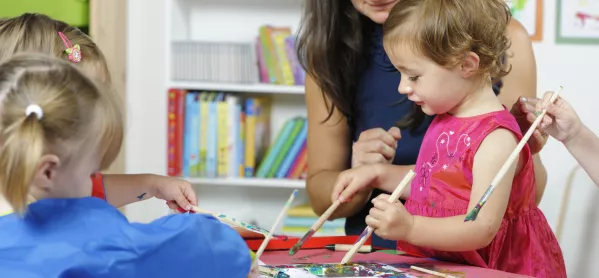‘Gaming’ warning over high-stakes baseline assessments
Share
‘Gaming’ warning over high-stakes baseline assessments
https://www.tes.com/magazine/archive/gaming-warning-over-high-stakes-baseline-assessments

Schools may try to “game” controversial new baseline assessments for four-year-olds, government-funded research published today warns.
The survey of a representative sample of primaries in England says says there is “evidence to suggest” schools may carry out the assessments at the earliest possible opportunity, so as to maximise their chances of demonstrating progress in later years.
The study, carried out by the National Foundation for Educational Research, says: “A ‘gaming’ approach could be harmful for learning, if teachers minimise learning opportunities at the start of Reception in favour of concentrating on the administration of the assessment and on keeping scores low at baseline.”
A small minority of schools surveyed report that they will no longer give pupils’ answers the benefit of the doubt in order to depress scores and make it easier to show progress.
Thousands of schools are expected to start using baseline assessments in September 2015. They are optional, but from September 2016 they will be the only accepted way of measuring pupils’ progress during primary school.
Ofsted highlighted the dangers of the baseline assessment creating “perverse incentives” earlier this week, saying that it did not encourage schools to work with nurseries.
Beatrice Merrick, chief executive of charity Early Education, said: “When high-stakes tests are introduced, you will get distortion, you will get gaming. It is very well-evidenced.
“There is a potentially damaging knock-on effect from this to the rest of the early years sector. If schools do deflate the results, that has the implication that the rest of the early years sector - before children arrive in schools - is not delivering.
“There will be a discrepancy between what a child achieved at the end of the previous year and the start of Reception year because the child is not settled in.
“The baseline formalises that and it becomes a stick to beat the rest of the early years sector with on a completely spurious basis. They are too much about what a child can’t do, and not enough about what they can.”
All of the 296 schools surveyed currently assess children when they start Reception. The study also finds that around 10 per cent of schools are undecided about whether to use the Reception baseline.
You've reached your limit of free articles this month. Subscribe for £1 per month for three months and get: